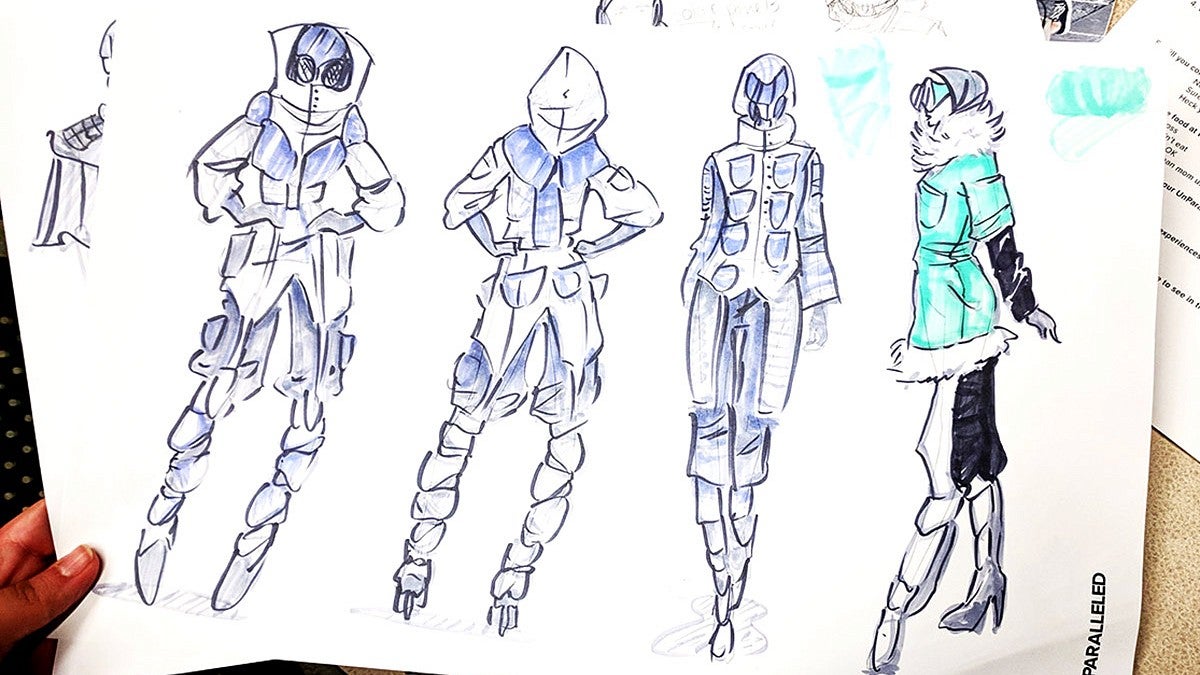
For the seventh year in a row, Design Week Portland is set to take over the City of Roses with its eight-day festival (April 6–13) spanning artist studios, public spaces, galleries, architecture firms, creative agencies, factories, and more. Go to see designers, artists, planners, and other creatives in their natural habitats or, as UO Research Assistant Professor of Architecture Mark Fretz put it, to meet “designers and researchers passionate about improving the world,” many of whom are connected to the College of Design. Here’s a guide to College of Design events during Design Week.
Sneaker Jam and More
Unparalleled Product Design Series
April 7–13, White Stag Block
This weeklong series of workshops is one of the most popular attractions at Design Week Portland featuring everything from sneaker design to biomechanics to athletic fashion. At “Unparalleled Product Design: Sneaker Jam” (April 8), for example, learn to draw shoe designs for your sport of choice. For three years, the National Endowment for the Arts has provided funding so that Sports Product Design graduate students can lead free workshops for high school students and design novices in drawing, building, sewing, planning, and presenting. “They are the most comprehensive events about 3D physical product design offered during Design Week Portland,” said Product Design Department Head and Associate Professor Kiersten Muenchinger.
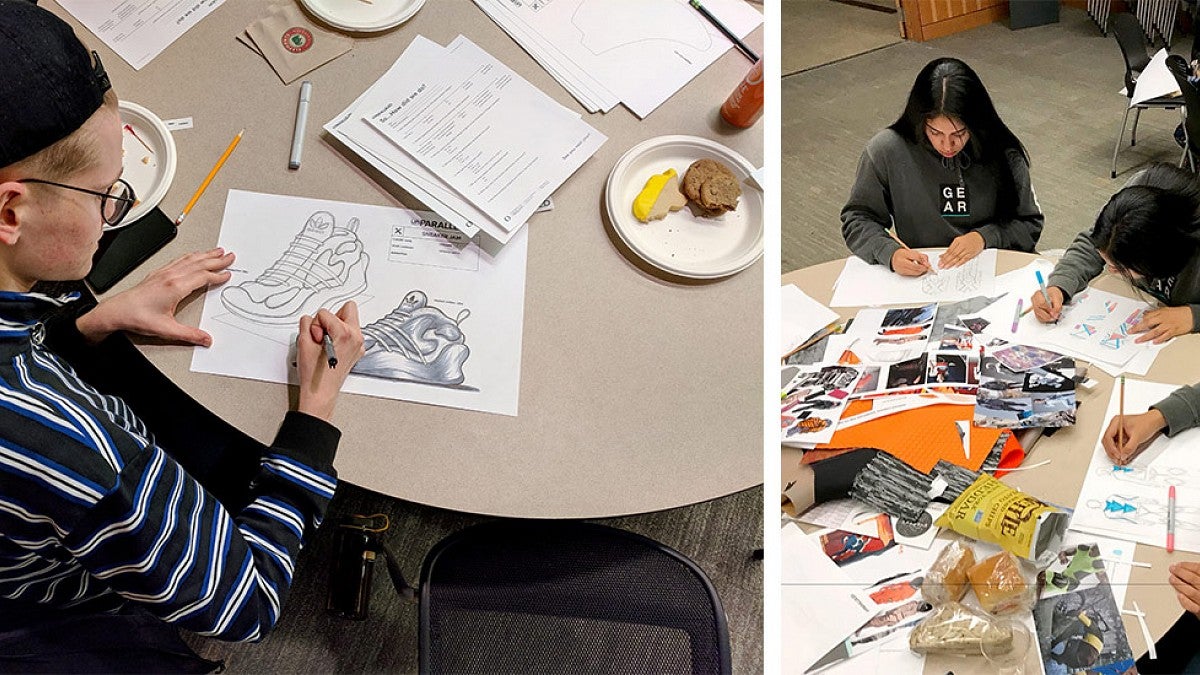
It Takes A Village
Lents: Creative Design Solutions for Southeast Foster (An Action-Oriented Community Conversation)
Noon to 3:00 p.m., Sunday, April 7, Leach Botanical Garden
6:00 to 9:00 p.m., Monday, April 8, White Stag Block
What is the role of design in the future of the city and who gets a say in the process? This question is at the center of two Creative Design Solution events hosted by the School of Architecture & Environment Portland: “Lents: Creative Design Solutions for Southeast Foster (An Action-Oriented Community Conversation)” and “Creative Design Solutions for Community, Infrastructure, and Environment: An Evening with Michael Singer and Friends.” These events are linked to the upcoming spring term urban design studio (ARCH 4/584 Hydro-Logical Design as Community Development) taught by Director of the Portland Architecture Program and Professor of Architecture Brook Muller and visiting architecture professor Jill Bambury in collaboration with Michael Singer Studio—an art, design, and planning studio based in Florida and Vermont.
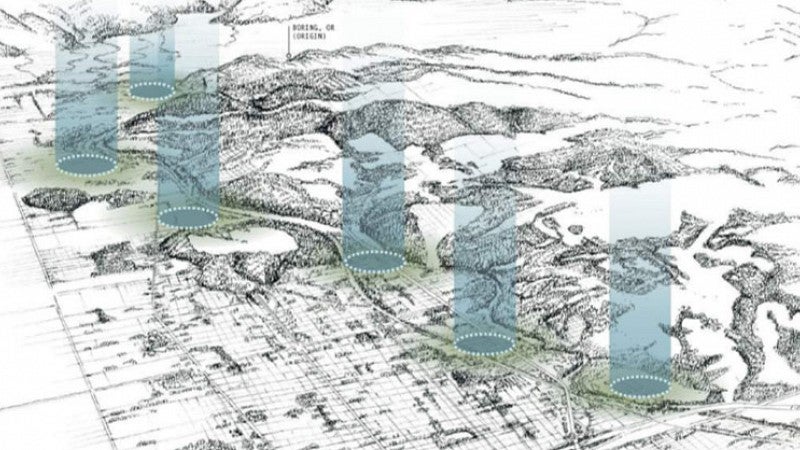
99% Invisible
Design the Unseen: Go Beyond the Visual to Design Our Built Environment
Noon to 2:00 p.m., Wednesday, April 10, White Stag Block
The Institute for Health in the Built Environment (housed within the College of Design) is where designers and scientists collaborate to investigate the micro and macro scales of design. Mark Fretz, the institute’s associate director of knowledge exchange, encourages people to come for the “Magical Mirrored Lightbox,” which can help seasonal affective disorder and “transport you to the beach in Maui, or simply tell you how much daylight you can expect to be available anywhere in your building.” Then look for the Climate Chamber that tests people for "microbrial clouds" and the dust dollhouses that replicate office buildings near the White Stag Block in Portland. “You can carry up them up to the rooftop, fill them with dusty microbial occupants, and let them have a party,” Fretz said.
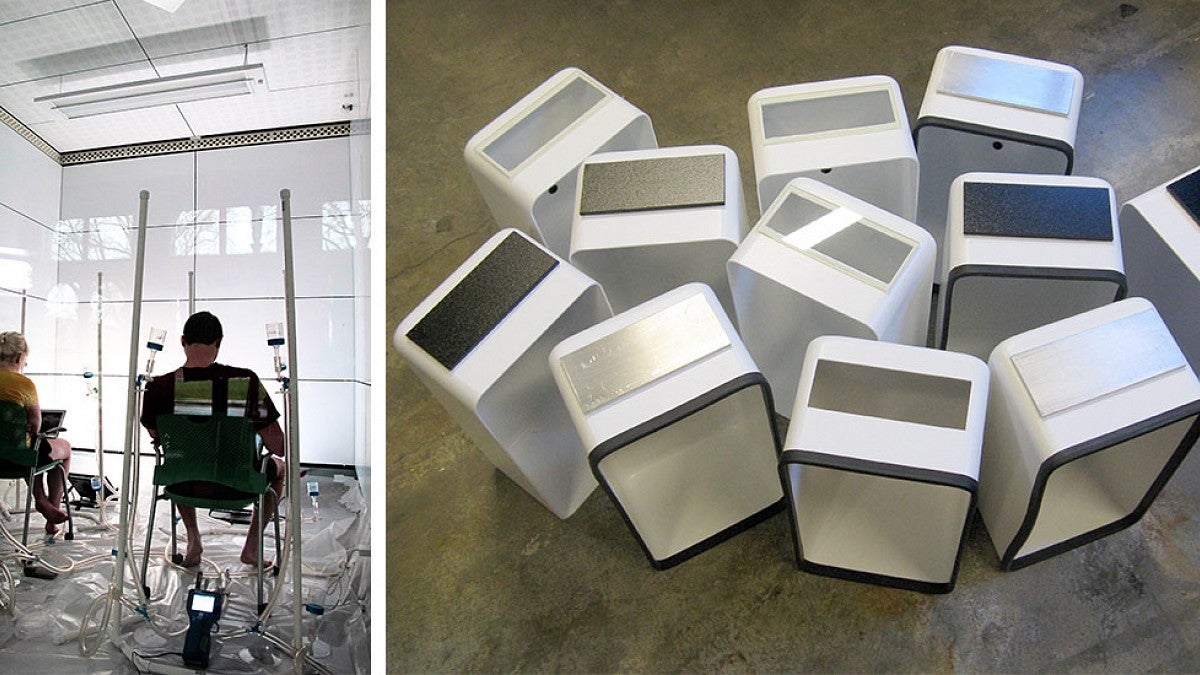
HOPES at 25
Destructive Idealism: Rethinking Resilient Systems
10:00 am to noon, Saturday, April 13, White Stag Block
Destructive Idealism: Empowering Local Community
1:00 to 3:00 p.m., Saturday, April 13, White Stag Block
Celebrating its 25th Anniversary, HOPES (Holistic Options for Planet Earth Sustainability)—an annual conference hosted by the Ecological Design Center student group in the College of Design—will join forces with Design Week Portland for two free events. The 2019 HOPES theme is “destructive idealism,” an attack on complacency and a pledge to resilience in the face of climate-related disasters and regressive policy. At the event “Destructive Idealism: Rethinking Resilient Systems,” University of California Berkeley Professor of Architecture Ronald Rael will lead a panel to discuss large-scale systematic solutions to these problems. HOPES will also host “Destructive Idealism: Empowering Local Community,” a workshop that focuses on resilience and neighborhood engagement. Watch HOPES co-directors Kahei Lee and Zachary Sherrod discuss the 25th anniversary here.
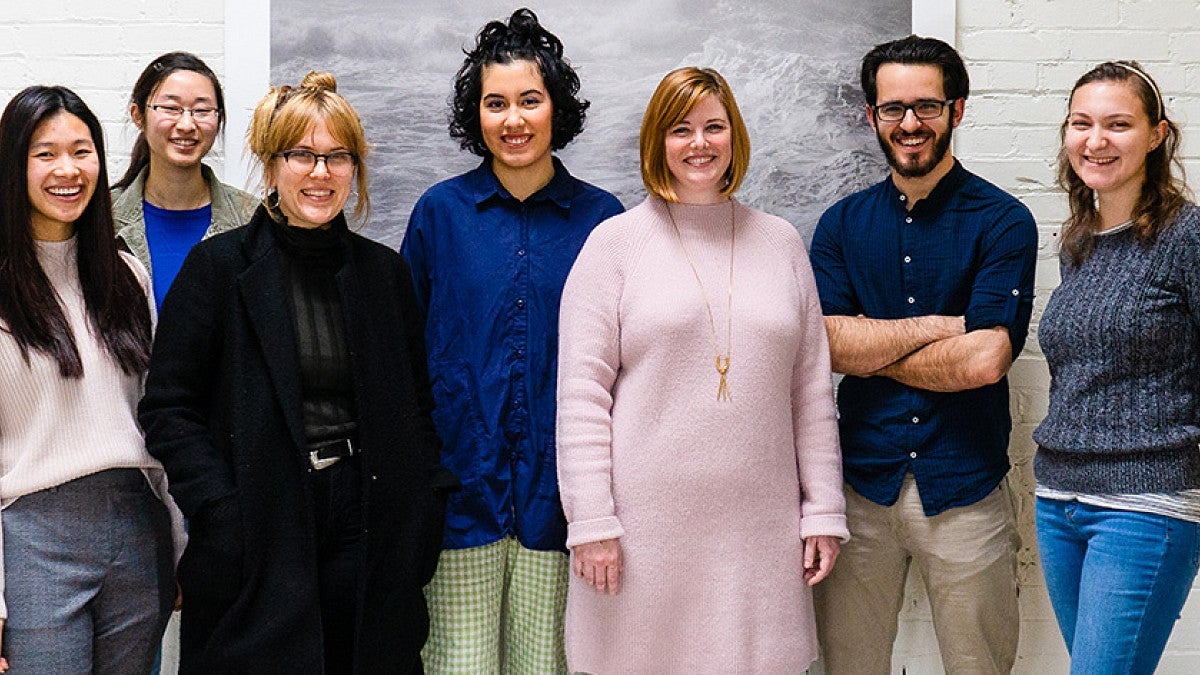
Design Week Portland is an important opportunity for students and faculty to present their research and network with professionals across the design spectrum. Read more about the festival in the Design Week Portland guide
